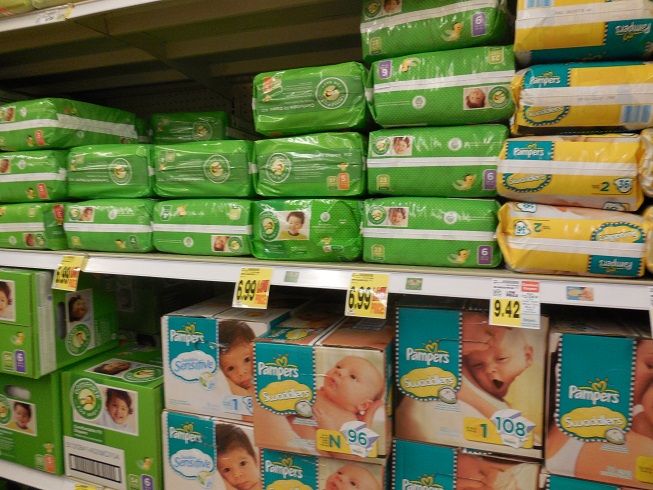
Tennessee’s Medicaid program is knocking one major expensive off the household budget for new parents: diapers.
The TennCare benefit covers up to 100 diapers per month for the first two years of a baby’s life. There is no co-pay or prescription. Residents have to go through a local pharmacy participating in the program.
TennCare officials compiled a list of more than 200 across the state, and more are expected to join the program over time.
Among the participating pharmacies is Pruitt’s Discount Pharmacy in East Nashville. That’s where Gov. Bill Lee visited Wednesday and discussed the program with journalists. A few families were on the list of members scheduled for a diaper pick up, and there were tents outside with diapers, other baby supplies and information about support services for new parents.
“I think most any of us that have had children know that it costs a lot of money to buy diapers,” Lee said. “When you interact with these families, some of them that are in need of diapers and financially in a more difficult spot, you kind of know that you’re actually meeting a real need.”
Diapers cost the average family about $1,000 per child per year, according to a report issued by the National Diaper Bank Network last year.
More than 1,000 households participated in that survey. About half of them reported they had struggled to afford diapers in the year leading up to the survey. Just as many said they had cut back on other expenses to shore up money for diapers. Of those, about a third said they cut back on food.
Lee said about 9,000 families have signed up for the program since it became available the first week of August.
To use the benefit, parents will need to bring their child’s TennCare prescription card or have their social security number. If the baby is too young to have a card yet, parents can show their own prescription or social security card. Initially, the benefit will cover certain products made by four brands: Huggies, Cuties, Pampers, and Luvs.
The program covers diapers for children who are enrolled in TennCare and under 2 years old. There are some exceptions for children with medical issues that affect their bladder or bowel control, and the agency recommends parents reach out to check if their qualifies.
Leaving a diaper on too long can give babies urinary tract infections, skin irritation and poor sleep, according to Harvard Public Health, a magazine affiliated with the university.
Lee said the budget for the multi-year pilot program is about $30 million annually. The funding source is what state leaders call “shared savings.”
Medicaid programs like TennCare use state and federal money to pay for low-income residents’ health care. Tennessee has an agreement with the federal government in which the federal Medicaid agency put a cap on how much the state can spend on TennCare. If the state stays under budget, they get to keep half the leftovers. Over the past two years, Tennessee has gotten to hold onto about $600 million. A portion of that is going to this diaper program.
Lee proposed diaper coverage in his State of the State address last year.
“We are going to propose covering the cost of diapers during the first two years of a baby’s life for mothers on TennCare,” he said during the remarks. “If approved, Tennessee will be the first Medicaid program in the nation to implement this kind of support. That’s pro-life. That’s pro-family.”
Several Republican states, like Tennessee, have created more programming to support new parents after outlawing most abortions. Government officials like Alabama Gov. Tate Reeves have called it the new pro-life agenda, according to PBS. Critics argue that the supports like these are helpful, but they are inadequate in light of the increasing number of people who are bringing unwanted pregnancies to term.
The programming has included extending Medicaid coverage for pregnant residents. Benefits used to run until 60 days post-birth, and now they run a full year after birth. That is because several major pregnancy-related health problems — and deaths — can occur more than 60 days after birth.

